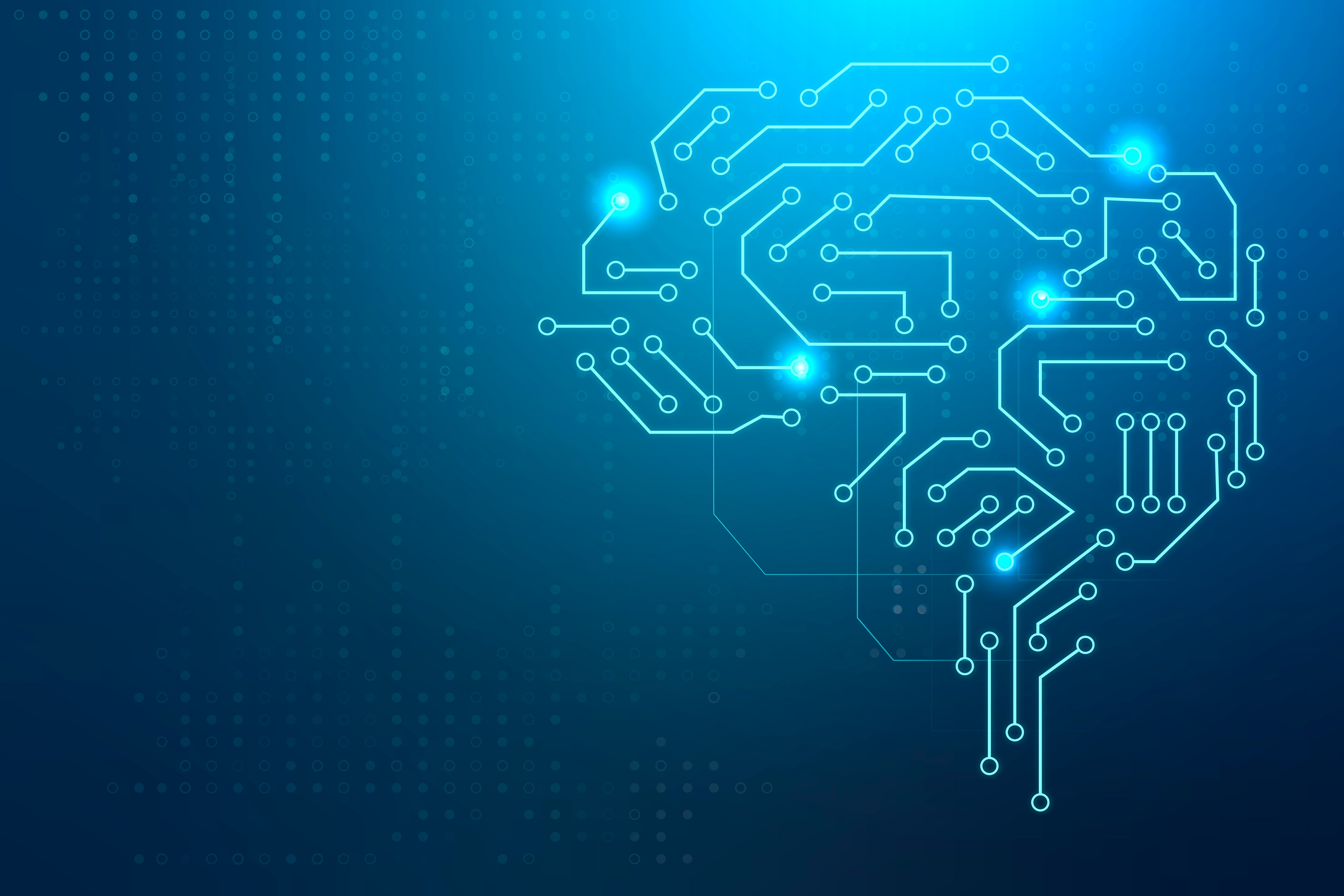Artificial Intelligence vs. Machine Learning: Decoding the Buzzwords
 sanjana shah
sanjana shah
In today's tech-driven world, two terms frequently dominate headlines and industry discussions: artificial intelligence (AI) and machine learning (ML). While often used interchangeably, these concepts have distinct meanings and applications. Understanding the difference between AI and ML is crucial for navigating the ever-evolving landscape of computer science. An MS in Computer Science equips you with the knowledge and skills to delve deeper into these fascinating fields and contribute to their advancement.
This blog explores the concepts of artificial intelligence and machine learning, outlining their key differences, applications, and the intricate relationship between them.
Demystifying Artificial Intelligence: The Power of Intelligent Machines
Artificial intelligence (AI) is a broad concept that encompasses the creation of intelligent machines capable of mimicking human cognitive functions such as learning, reasoning, problem-solving, and decision-making. AI research aims to develop systems that can exhibit intelligent behavior and adapt to new situations without explicit programming.
Here are some key characteristics of AI:
Learning: AI systems can learn from data or experience, improving their performance over time.
Reasoning: AI systems can analyze information and draw logical conclusions.
Problem-solving: AI systems can identify and solve problems using various approaches.
Decision-making: AI systems can make informed decisions based on available information and criteria.
The Many Faces of AI: Exploring Different Approaches
There are several approaches to achieving AI, including:
Machine Learning: This approach focuses on training algorithms on data to learn and improve their performance on a specific task.
Natural Language Processing (NLP): This field enables computers to understand and process human language.
Computer Vision: This area focuses on equipping computers with the ability to interpret and analyze visual information.
Robotics: This field combines AI with mechanical engineering to create intelligent robots capable of performing tasks in the real world.
Machine Learning: Unveiling the Power of Learning from Data
Machine learning (ML) is a subfield of AI that focuses on creating algorithms that can learn from data without being explicitly programmed. ML algorithms are trained on large datasets, allowing them to identify patterns and relationships within the data. These patterns and relationships are then used to make predictions or decisions on new data.
Here are some key characteristics of ML:
Data-driven: Machine learning algorithms rely on large amounts of data to learn and improve.
Algorithmic Learning: ML utilizes various algorithms to identify patterns and make predictions based on the data.
Predictive Power: ML algorithms can be used to make predictions about future events or outcomes based on historical data.
Self-Improvement: Some ML algorithms can continue learning and improving their performance even after being deployed.
The Symphony of AI and ML: Working in Tandem
While distinct concepts, AI and ML are intricately linked. Machine learning serves as a crucial tool for achieving artificial intelligence. AI systems often utilize machine learning algorithms to learn from data, improve their performance, and make intelligent decisions.
Here's an analogy: Imagine an AI system as a chef. The goal of AI is to create delicious dishes. Machine learning algorithms act as the chef's recipe book. By analyzing past successes and failures (data), the chef (AI system) learns which ingredients and techniques work best (identifies patterns). This allows the chef to create new, innovative dishes (make intelligent decisions) in the future.
Equipping Yourself for the Future: The Value of an MS in Computer Science
The fields of AI and ML are rapidly evolving, offering a wealth of career opportunities for skilled professionals. An MS in Computer Science provides a strong foundation in theoretical and practical aspects of AI and ML. Here's how:
Deep Dive into AI Fundamentals: An MS program delves into the core principles of AI, covering topics like search algorithms, knowledge representation, reasoning, and planning.
Mastering Machine Learning Techniques: Programs equip you with in-depth knowledge of popular machine learning algorithms, including supervised learning, unsupervised learning, and reinforcement learning.
Hands-on Learning with Real-World Data: Many MS programs offer courses with practical projects involving data acquisition, pre-processing, model training, and evaluation using real-world datasets.
Research Opportunities: Graduate programs often provide opportunities to participate in research projects related to AI and ML, allowing you to contribute to the advancement of these fields.
Developing Industry-Ready Skills: MS programs focus on developing essential skills for an AI/ML career, such as data analysis, programming languages like Python and R, and machine learning libraries like TensorFlow and scikit-learn.
Beyond the Buzzwords: A Future Shaped by Intelligent Machines
Artificial intelligence and machine learning are no longer science fiction. They are transforming various industries, from healthcare and finance to manufacturing and transportation. An MS in Computer Science positions you to be at the forefront of this exciting revolution. Here are some potential career paths you can pursue:
Machine Learning Engineer: Design, develop, and deploy machine learning models to solve specific problems in various industries.
AI Researcher: Conduct research on new AI algorithms and applications, pushing the boundaries of intelligent machines.
Computer Vision Engineer: Develop algorithms and systems that enable computers to interpret and analyze visual information.
Natural Language Processing Engineer: Build systems that allow computers to understand and process human language, leading to advancements in chatbots, machine translation, and sentiment analysis.
Robotics Engineer: Design and develop robots capable of performing tasks in the real world, integrating AI and machine learning for autonomous decision-making and intelligent behavior.
Investing in Your Future: Choosing the Right MS in Computer Science Program
Numerous universities and institutions offer MS in Computer Science programs with specializations or concentrations in AI and ML. Consider factors like program curriculum, faculty expertise, research opportunities, and career placement assistance when making your choice. Look for programs that offer a balance between theoretical knowledge and practical application, ensuring you graduate with the skills and experience to thrive in the AI/ML job market.
Embrace the Challenge: Delve Deeper into the World of AI and ML
The fields of AI and ML are complex and ever-evolving. However, the potential rewards are vast. By pursuing an MS in Computer Science focused on AI and ML, you're not just acquiring knowledge – you're investing in a future filled with innovation, problem-solving, and shaping the world with intelligent technologies.
The world craves skilled professionals who can understand, develop, and implement AI and ML solutions. Take the first step towards a rewarding career at the forefront of this exciting revolution. Explore MS in Computer Science programs today and unlock your potential to become a pioneer in the fascinating world of artificial intelligence and machine learning.
Subscribe to my newsletter
Read articles from sanjana shah directly inside your inbox. Subscribe to the newsletter, and don't miss out.
Written by
